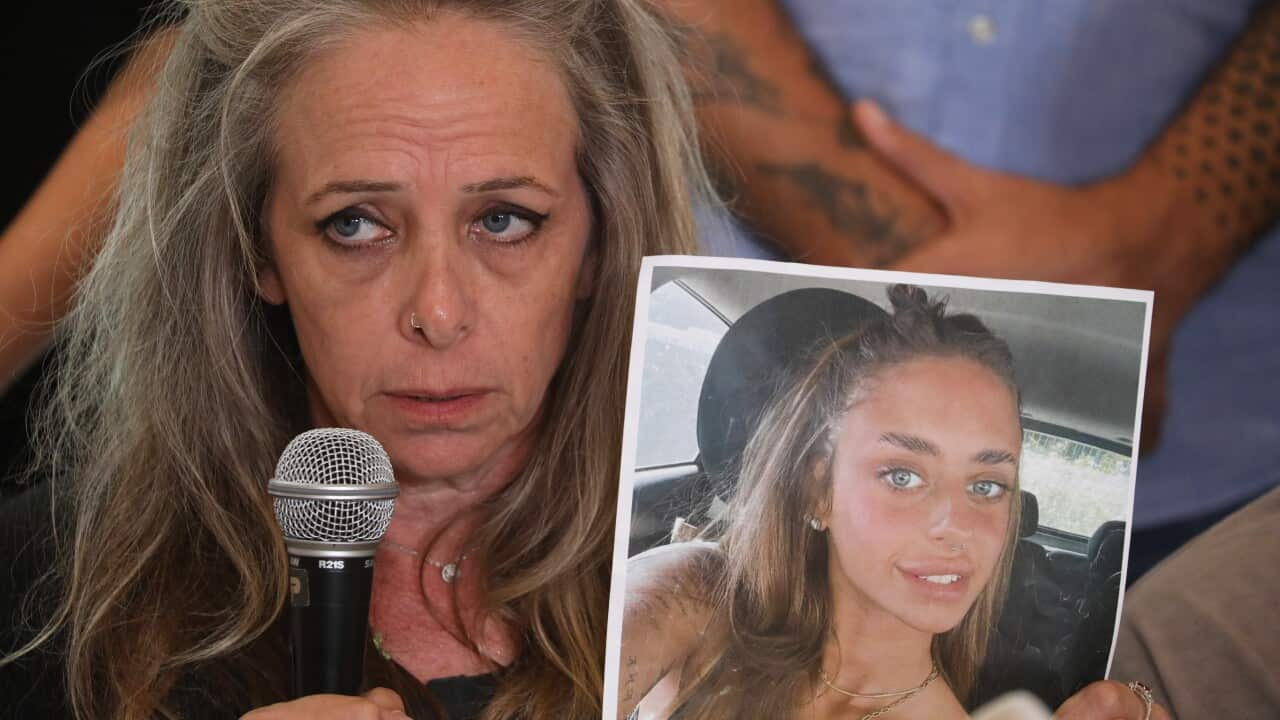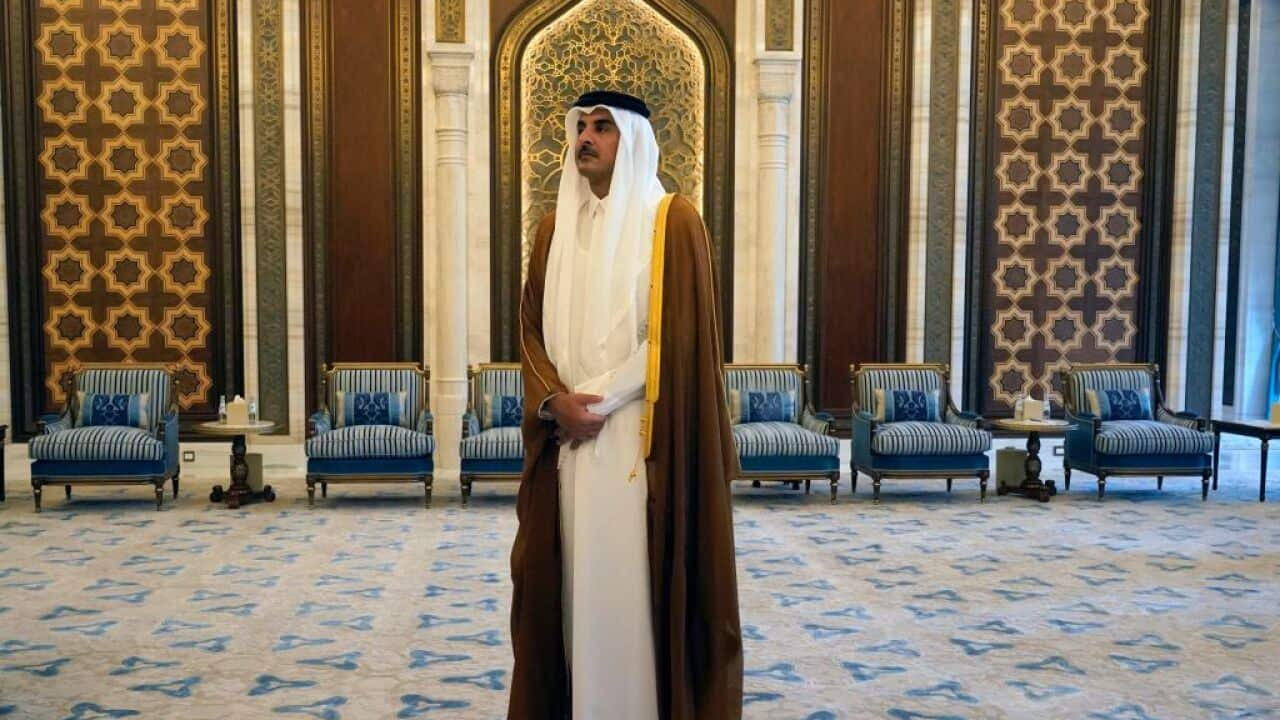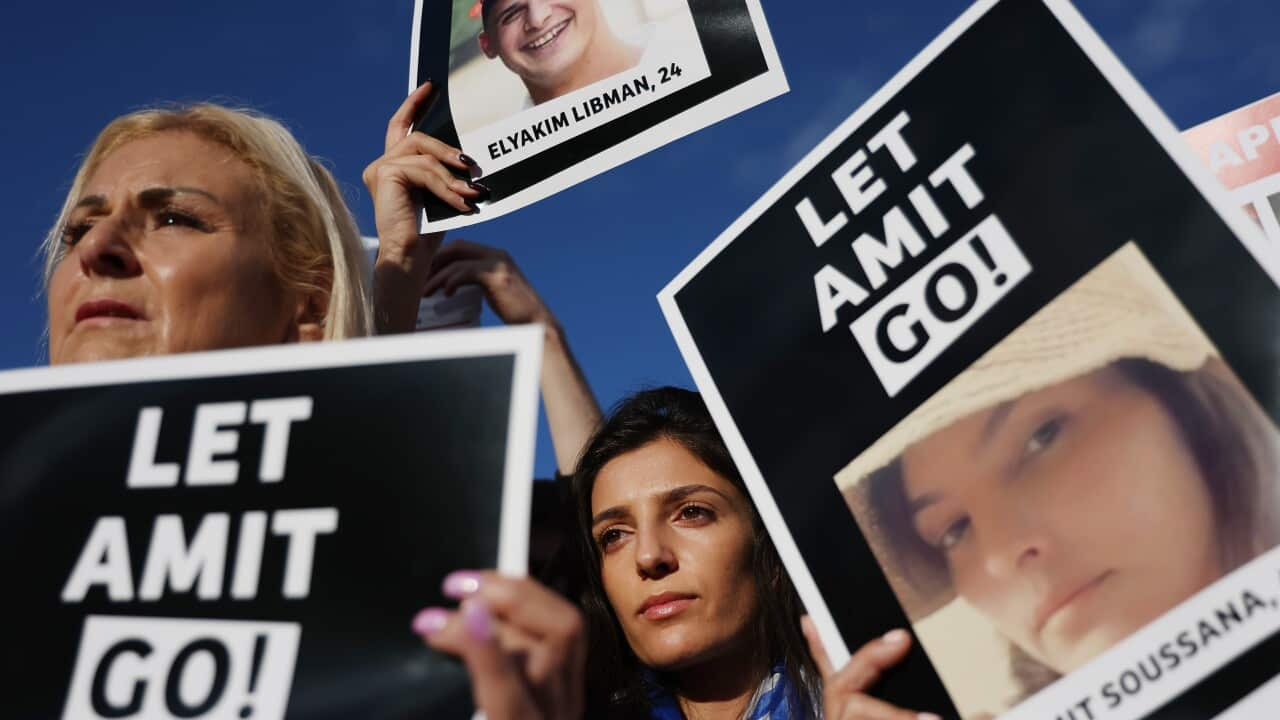On Tuesday evening, just as the Israeli government convened to deliberate a deal with Hamas to free 50 hostages, Maayan Zin took a double dose of sleeping pills and went to sleep. The wait was agonising, and she decided to disconnect from everything.
She woke up with a sore back but to reassuring news: Israel’s government had for a four-day ceasefire and the release of 50 women and children held in Gaza in exchange for 150 Palestinian prisoners.
It has been 48 days since Maayan saw her two daughters: 15-year-old Dafna and 8-year-old Ela Elyakim. The girls are believed to be among the more than 240 hostages taken to Gaza.
At the time of the publication, it was still unknown whether Dafna and Ela would be on the list for release.
According to Israeli officials, 50 hostages will be freed in groups of 10 over four days, during which there will be a pause in fighting. Three dual US-Israeli citizens are expected to be among them. However, the planned exchange has been delayed until at least Friday.
For Maayan and other relatives of hostages, it means the period of anxious anticipation and uncertainty is extending.
"I’m very worried. But I trust the government and the IDF (Israel Defence Forces). They know what they are doing," she told SBS Dateline, adding that she hasn’t received any more information on the upcoming release than what has been reported in the media.
She refrains from talking about politics at this time.

15-year-old Dafna (right) and 8-year-old Ela Elyakim were kidnapped from their father's home in Nahal Oz on 7 October and have been held hostage by Hamas since then. Source: Supplied
"I can’t think of just one scenario because I really don’t know what their situation will be like. Are they going to be very depressed, are they going to be happy to come back, will they be wounded or healthy?" she said.
"I’m thinking about the most optimistic and happiest scenario in which I’m hugging and kissing them. But on the other hand, I’m also thinking about a less positive scenario where there’s a lot of sadness and difficulty and tears. I really don’t know how it’s going to turn out."
More than 1,200 people, including an estimated 30 children, were killed by Hamas during . Among the more than 240 people taken hostage are more than 30 children, including a 10-month-old baby, according to Israeli authorities.
Israel’s retaliatory offensive on Gaza has killed at least 14,500 people, including 5,840 children, according to the latest figures from the Hamas-run health department.
Hamas is a Palestinian military and political group that has gained power in the Gaza Strip since winning legislative elections there in 2006.
Its stated aim is to establish a Palestinian state, while refusing to recognise Israel’s right to exist.
Hamas, in its entirety, is designated as a terrorist organisation by countries including Australia, Canada, the UK and the US while New Zealand and Paraguay list only its military wing as a terrorist group.
Other countries voted against a UN resolution condemning Hamas in its entirety, as a terrorist organisation.
The 'Bring Them Back Home' campaign
On 7 October, Maayan was in Tel Aviv. The girls were with their father in Nahal Oz, a kibbutz in southern Israel just 800 metres from the border with Gaza. She heard the sirens and turned on the TV to learn the news of the Hamas attack.
Noam Elyakim was shot dead, likely in front of his daughters. Maayan’s relatives later found a photo of the girls on the messaging app Telegram, showing Dafna and Ela sitting on a mattress on the floor. Ela’s hand appears to be bandaged, an injury she didn’t have when her mother last saw her on 6 October.

Maayan Zin with her daughters Dafna and Ela. Source: Supplied
Hamas is believed to be holding the hostages, making any rescue operation difficult. The relentless bombardment of Gaza left relatives of the hostages fearful their loved ones could become collateral damage.
Fearing that the hostages would be forgotten, families of the hostages started a ‘Bring Them Home’ campaign, holding rallies in Israel and across the world, speaking with the media and meeting with high-ranking politicians and the International Red Cross Committee.
A few days earlier, Maayan mounting the pressure on their government to prioritise rescuing the hostages.
Noam Alon, one of the march attendees, whose girlfriend is being held by Hamas, said: "We cannot wait any longer, so we are demand[ing] them to do that now, to pay any price to bring the hostages back."
An employee at Tel Aviv’s Ben Gurion airport, Maayan has taken time off work since her daughters were kidnapped and focused on advocating for their release.
"I’ve kept myself busy as much as possible trying to bring the girls home. I’ve also got a lot of help from friends and new friends who took care of me, kept me busy and filled my time and my heart."





